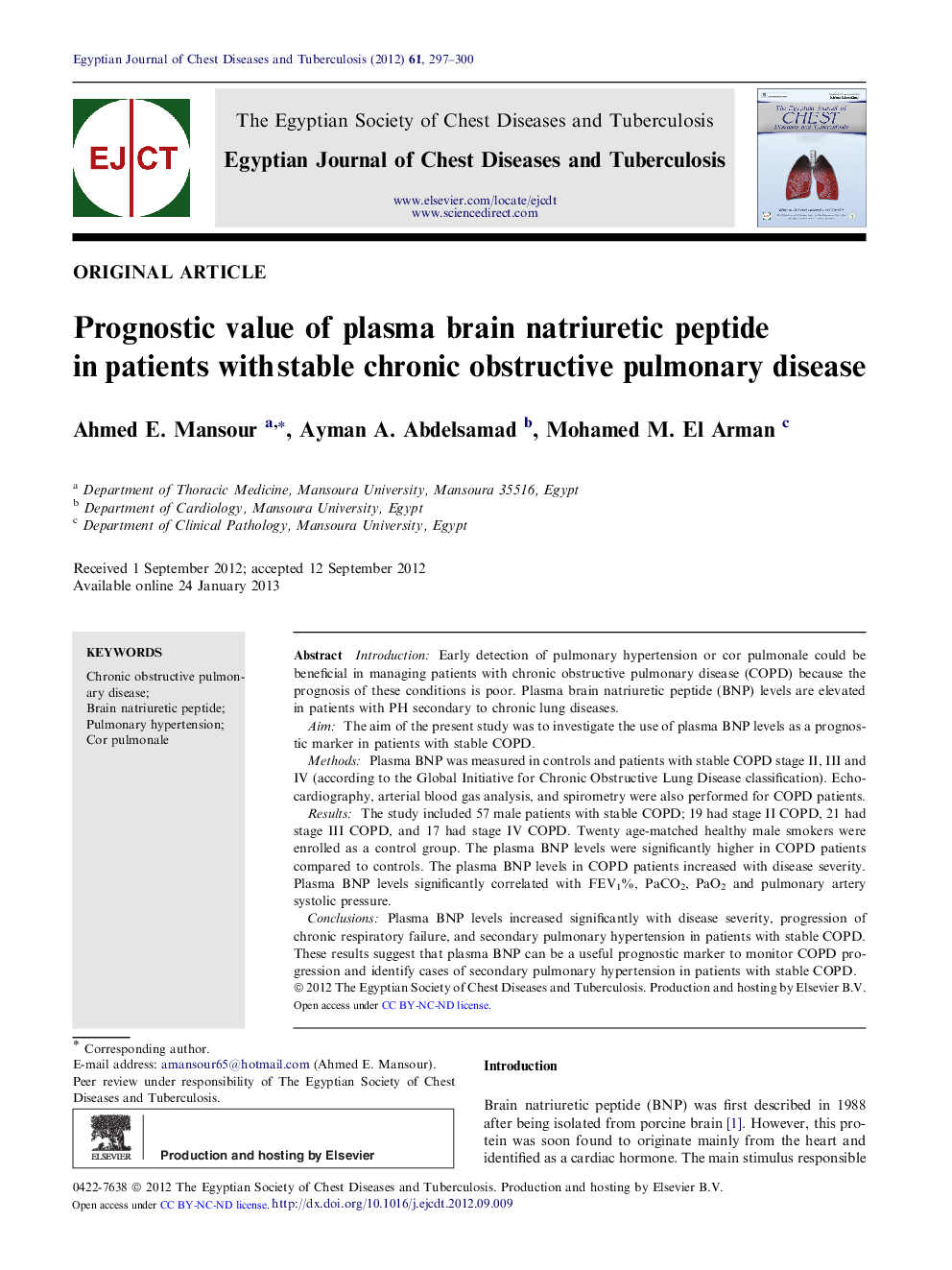| Article ID | Journal | Published Year | Pages | File Type |
|---|---|---|---|---|
| 3400267 | Egyptian Journal of Chest Diseases and Tuberculosis | 2012 | 4 Pages |
IntroductionEarly detection of pulmonary hypertension or cor pulmonale could be beneficial in managing patients with chronic obstructive pulmonary disease (COPD) because the prognosis of these conditions is poor. Plasma brain natriuretic peptide (BNP) levels are elevated in patients with PH secondary to chronic lung diseases.AimThe aim of the present study was to investigate the use of plasma BNP levels as a prognostic marker in patients with stable COPD.MethodsPlasma BNP was measured in controls and patients with stable COPD stage II, III and IV (according to the Global Initiative for Chronic Obstructive Lung Disease classification). Echocardiography, arterial blood gas analysis, and spirometry were also performed for COPD patients.ResultsThe study included 57 male patients with stable COPD; 19 had stage II COPD, 21 had stage III COPD, and 17 had stage IV COPD. Twenty age-matched healthy male smokers were enrolled as a control group. The plasma BNP levels were significantly higher in COPD patients compared to controls. The plasma BNP levels in COPD patients increased with disease severity. Plasma BNP levels significantly correlated with FEV1%, PaCO2, PaO2 and pulmonary artery systolic pressure.ConclusionsPlasma BNP levels increased significantly with disease severity, progression of chronic respiratory failure, and secondary pulmonary hypertension in patients with stable COPD. These results suggest that plasma BNP can be a useful prognostic marker to monitor COPD progression and identify cases of secondary pulmonary hypertension in patients with stable COPD.
